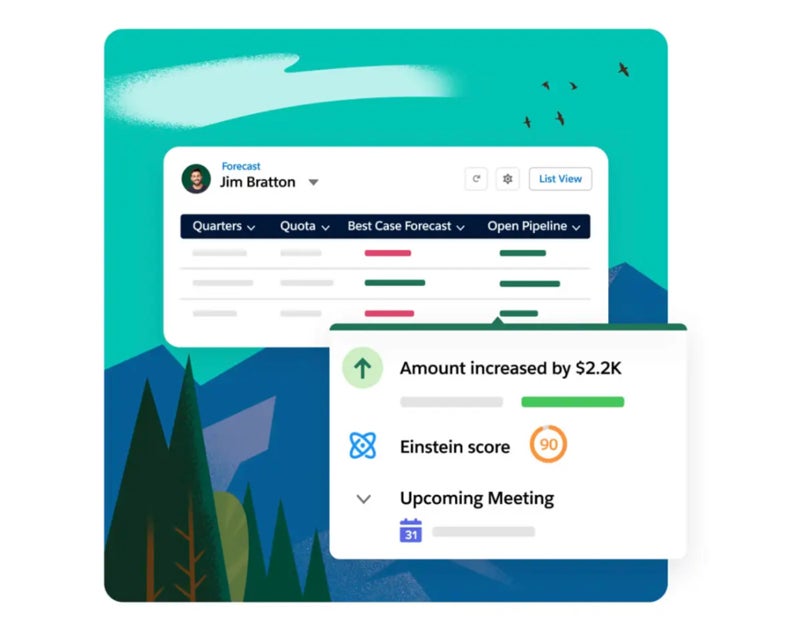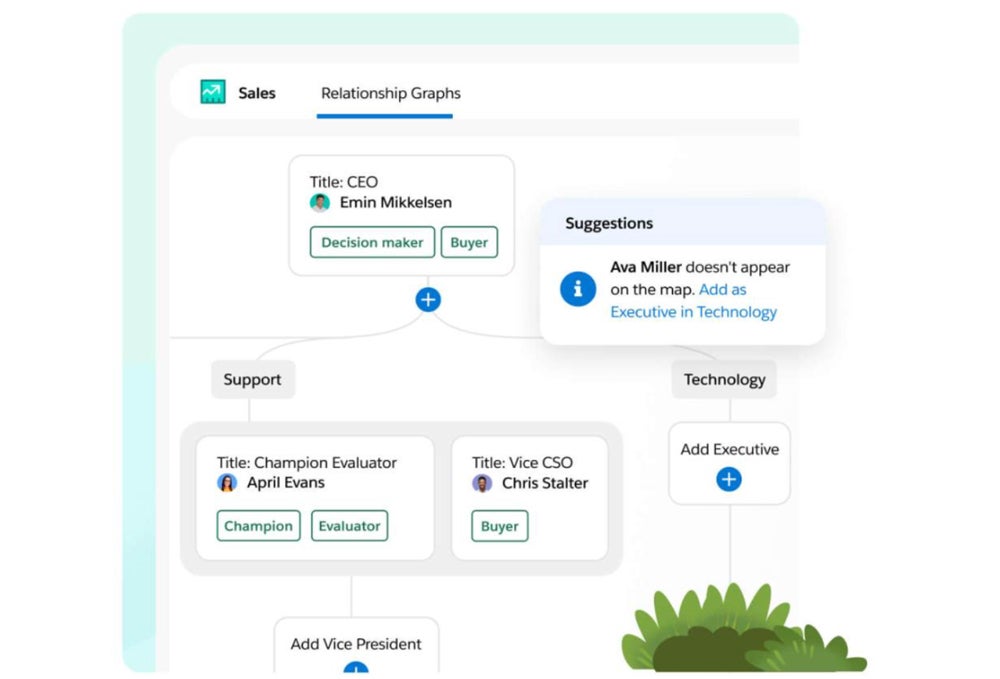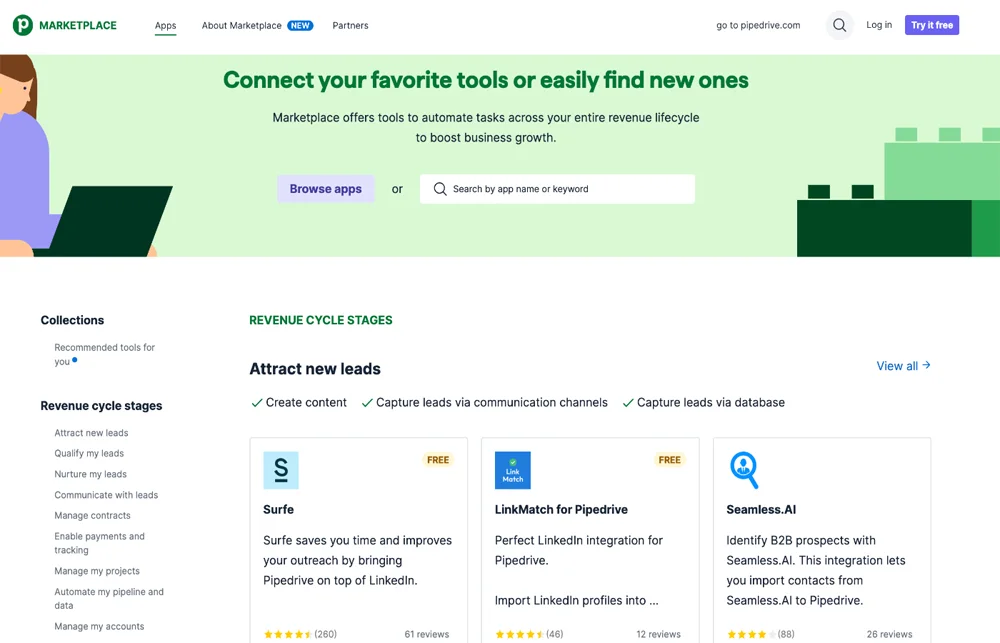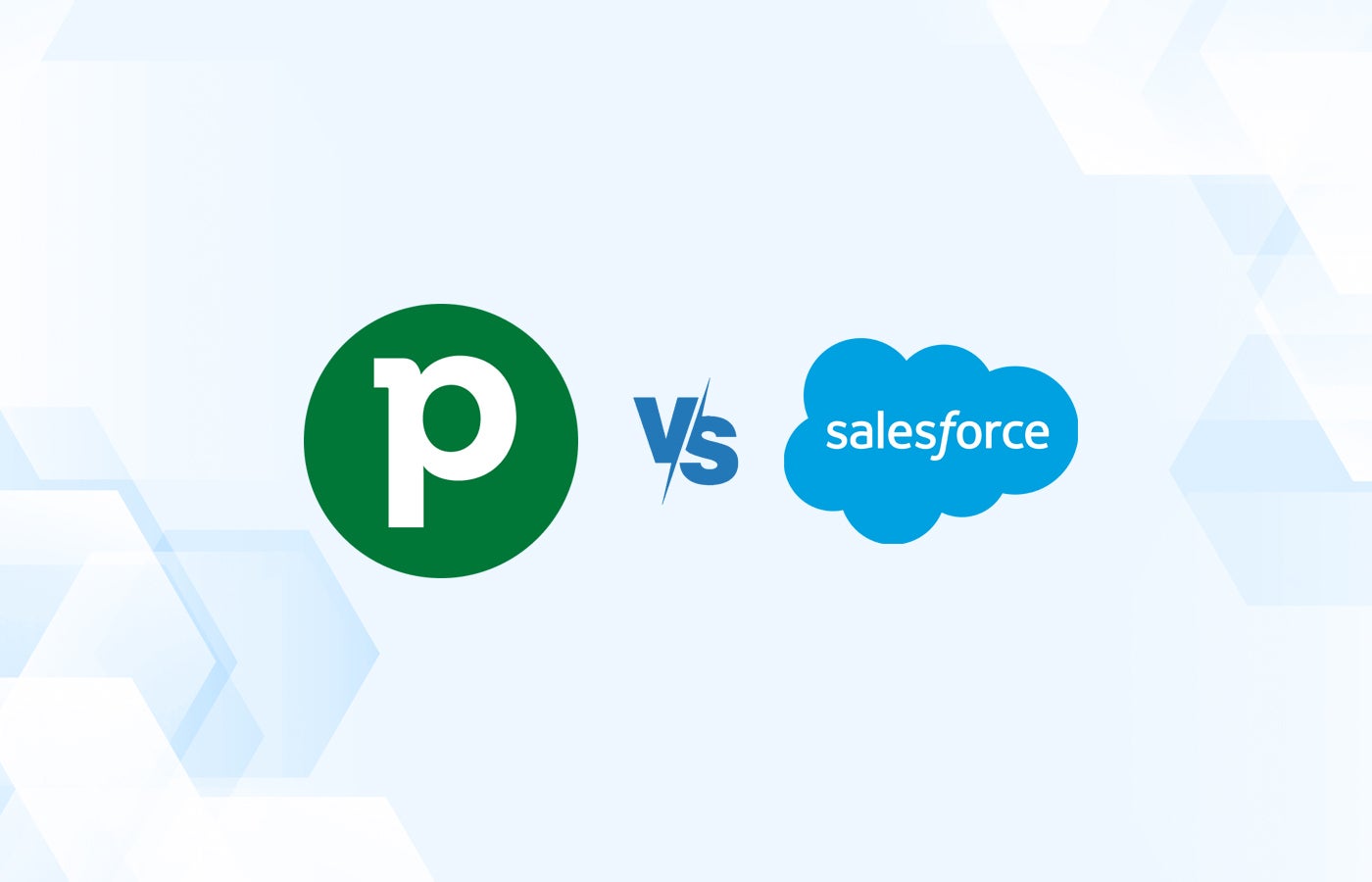Pipedrive and Salesforce are customer relationship management providers that are both known for their advanced technology and scalability. Pipedrive is an affordable and easy-to-use platform that prioritizes building out intuitive sales processes. Salesforce is a feature-rich and cloud-based software that provides a marketing and sales solution through robust AI tools.
Below, I break down each software pricing structure, pros and cons, and directly compare popular features. Depending on your business needs, budget and technical expertise, one of these providers may offer your business a more effective marketing and sales solution.
1
monday CRM
monday CRM
Employees per Company Size
Micro (0-49), Small (50-249), Medium (250-999), Large (1,000-4,999), Enterprise (5,000+)
Any Company Size
Any Company Size
Features
Calendar, Collaboration Tools, Contact Management, and more
3
Capsule CRM
Capsule CRM
Employees per Company Size
Micro (0-49), Small (50-249), Medium (250-999), Large (1,000-4,999), Enterprise (5,000+)
Any Company Size
Any Company Size
Features
Calendar, Collaboration Tools, Contact Management, and more
Pipedrive vs Salesforce: Comparison table
| Features | ||
|---|---|---|
| Custom processes and dashboards | ||
| Reports and analytics | ||
| AI-powered tools | ||
| Integrations | ||
| Starting price | ||
| For more information | ||
| *Price when billed annually. | ||
Pipedrive vs Salesforce: Pricing
Pipedrive
Pipedrive follows a typical CRM pricing structure with premium plans that are priced per user and based on access to core and advanced features. By offering five different tiers, users of Pipedrive can subscribe to a plan depending on their specific needs and company size.
- Free trial: 14 days
- Essential: $14 per user per month, billed annually, or $24 per user when billed monthly. The Essential plan includes people and organization management, product catalog, sales assistant and more.
- Advanced: $34 per user per month, billed annually, or $44 per user when billed monthly. The Advanced plan offers all Essential features plus automations, two-way email sync, group emailing and more.
- Professional: $49 per user per month, billed annually, or $64 per user when billed monthly. This tier supports all Advanced features and contacts timeline, free Smart Docs add-on, automatic assignment and more.
- Power: $64 per user per month, billed annually, or $79 per user when billed monthly. The Power plan includes all Professional offerings plus phone support, 500 custom fields and more.
- Enterprise: $99 per user per month, billed annually, or $129 per user when billed monthly. This tier offers all mentioned features plus up to 180 active automations, unlimited teams and unlimited custom permissions.
To learn more about this provider, head over to our Pipedrive review.
Salesforce
Like Pipedrive, Salesforce also doesn’t offer a free CRM. Where they set themselves apart is by setting their free trial length above the industry average. Only the Starter Suite offers billing options between monthly or annual subscriptions; otherwise, all premium plans are billed annually.
- Free trial: 30 days
- Starter Suite: $25 per user per month, billed monthly or annually. Users get account, contact, lead and opportunity management, as well as the mobile app, email integration and more.
- Professional: $80 per user per month, billed annually. The Professional plan includes all that’s found in the Starter Suite plus Sales Cloud, full offline functionality and more.
- Enterprise: $165 per user per month, billed annually. This tier offers opportunity scoring and deal insights plus data synchronization and harmonization.
- Unlimited: $330 per user per month, billed annually. The Unlimited tier includes all features mentioned above plus developer pro sandbox, lead scoring and five campaigns per opportunity.
- Einstein 1 Sales: $500 per user per month, billed annually. This tier includes all Salesforce CRM features, like collaboration tools via knowledge shares and Slack and more.
Check out our Salesforce review for more information.
Pipedrive vs Salesforce: Feature comparison
Custom pipelines and dashboards
Winner: Pipedrive
Pipedrive users can customize stages to reflect their sales cycle, create team pipelines and filter results by team member or stage. With its intuitive design, users can utilize colored cues, custom fields and a drag-and-drop interface to create a dashboard that accurately reflects their business model.
Salesforce’s sales cloud solution offers guided selling with deal insights and visibility into pipeline and forecast. Using the pipeline management tool, users can maintain pipelines in a single, consolidated view. By tracking changes over time with built-in charts and automating complex sales processes and workflows, businesses can maintain territory assignments and so much more.
Reports and analytics
Winner: Salesforce
With Pipedrive businesses are able to add custom fields to insights and reporting dashboards. KPIs and key metrics can be monitored in real time in one centralized location. Users can use the visual reports to set individual, department and company-wide goals, then track sales performance with metrics like revenue forecasts, lead reporting and deal tracking.
Salesforce has sales analytics built directly into the tool, which means businesses can get a comprehensive view of sales performance and deal inspection capabilities through rich visualizations of sales forecasts with built-in charts. With data-backed KPIs that showcase how the sales numbers compare with Einstein’s predictions, sales reps can quickly assess and take action on shifting forecasts through visual cues and alerts.

AI-powered tools
Winner: Salesforce
Pipedrive AI is a beta release of AI-powered features that are only offered on the Professional plan and above. AI CRM features include a sales assistant that can identify patterns and recommend high-potential deals, as well as an AI email generator, email summarization tool and AI app recommendations. Pipedrive uses a mix of internally-developed AI engines and OpenAI to offer these beta features.
Salesforce gives every user an AI assistant to automate lead research, draft and monitor emails and help manage mundane sales tasks. With predictive AI, users can uncover relationship networks without any manual research. Einstein 1 will auto populate contacts and relevant information to help build strong org charts with key decision makers for optimal lead generation and management.

Integrations
Winner: Tie
Pipedrive offers an integration marketplace of all the current applications businesses can sync their CRM software with to automate tasks. Categories of available apps include revenue cycle managers, lead qualifiers, lead nurturing and communication tools like Slack, Google Meet and Microsoft Teams. Users have the additional ability to use API; they can also build out new applications to use and integrate internally, then share them with other Pipedrive users.
Salesforce integrates directly with third-party applications and systems to streamline business data across your tech stack. For any applications that don’t have built-in integration, like on-premise data sources, users can purchase licenses for MuleSoft, work with integration partners or use AppExchange.

Pipedrive pros and cons
Pros of Pipedrive
- 14-day free trial.
- Provides multiple industry specializations.
- Offers 24/7 customer support.
Cons of Pipedrive
- Users report occasional integration issues.
- Limited email features and tools in the Essential tier.
- Users report limitations around custom reporting dashboards.
Salesforce pros and cons
Pros of Salesforce
- 30-day free trial.
- Industry-leading AI assistant, Einstein AI.
- Users report the platform is reliable, mature and provides consistent performance.
Cons of Salesforce
- Users report a steep learning curve with the software.
- Pricing can be expensive for startups or small businesses.
- Users report robust modules can be complicated or overwhelming.
Should your organization use Pipedrive or Salesforce?
Choose Pipedrive if:
- You need a CRM specifically for a call center, nonprofit, construction or healthcare business.
- You’re in need of a CRM for small businesses.
- You want CRM software with marketing and sales outreach tools for optimal lead generation.
Choose Salesforce if:
- Your business has the technical expertise and bandwidth to set up and customize the Salesforce interface.
- You’re in need of a CRM for enterprises.
- You’re in need of detailed business and sales forecasting tools.
PREMIUM: Choosing the right CRM for your organization.
Review methodology
I reviewed Pipedrive and Salesforce as general CRM software providers. To do this, I considered cost transparency, core features, customizations, integrations, system ease of use and customer support offerings. I referenced Pipedrive and Salesforce online resources, user reviews and community forums to better understand the average user experience of the platform.
After using these resources plus an in-house rubric made up of these defined criteria, I identified the pros, cons and ideal use cases for both Pipedrive and Salesforce.
Frequently asked questions (FAQs)
Which is better, Pipedrive or Salesforce?
Pipedrive is a better option for small to mid-sized businesses wanting an intuitive sales tool to help build out and strengthen their existing process and deal management. Salesforce is best for enterprises looking for an all-encompassing software solution for end-to-end business management. Both offer core features like contact management and business reporting as well as advanced features like lead scoring, making each a great provider in their own right.
Pipedrive is more affordable than Salesforce, but Salesforce is more customizable than Pipedrive. Because of this, identifying your unique needs first will help determine which tool is better for your business. No matter your needs, industry or budget, I suggest following CRM best practices to maximize whichever provider you do find as a best fit.
Is Pipedrive a good CRM?
Yes, Pipedrive is a good CRM. Pipedrive’s features like email communication, lead management, insights and reports can be adapted by startups, small businesses and enterprises. Additionally, it offers specific functionality and characteristics for niche industries, including financial services, event management, government, manufacturing, logistics and transportation, real estate and others.
What are the downsides of Pipedrive?
While the Essential tier of Pipedrive is affordable and comes with unlimited pipelines and contacts, the email and reporting features are fairly basic. Realistically, to access revenue reports and customizations for pipeline fields and reporting dashboards, users will have to subscribe to premium tiers at a higher price like the Professional plan.






